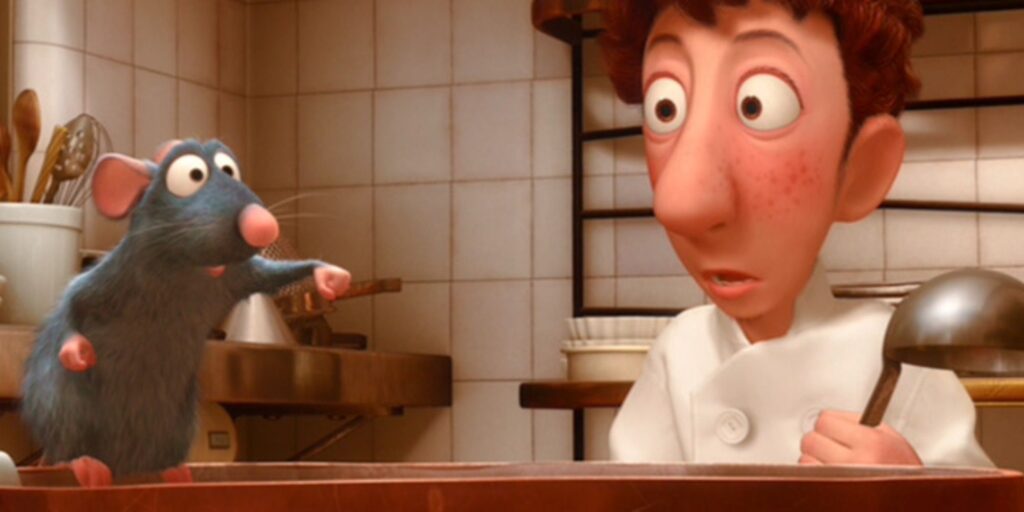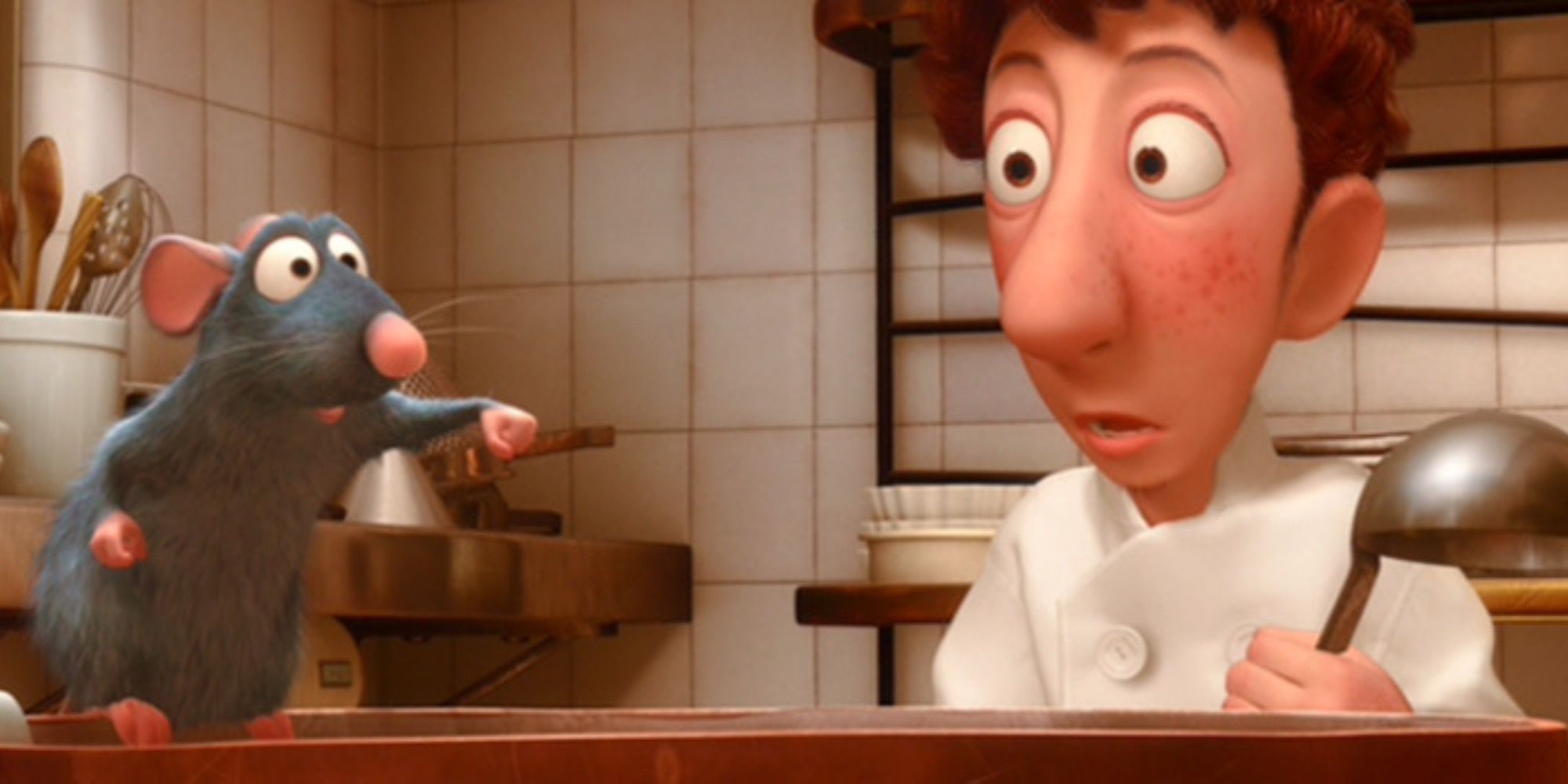
Chef Linguini from Ratatouille: More Than Just a Puppet?
Auguste Gusteau’s mantra, “Anyone can cook,” reverberates through the animated culinary landscape of Pixar’s Ratatouille. But the film’s heart arguably lies not with the culinary genius Remy, the rat with the discerning palate, but with Alfredo Linguini, the hapless garbage boy who becomes the film’s unlikely protagonist. While Remy controls Linguini like a marionette to realize his gastronomic ambitions, it’s crucial to examine Linguini’s own journey, his growth, and his ultimate claim to the title of “Chef Linguini from Ratatouille”.
This article delves into the complexities of Chef Linguini, exploring his initial incompetence, his accidental rise to fame, and his eventual embrace of honesty and integrity. We’ll analyze his character development, his relationships, and the underlying themes that make him a compelling and relatable figure in the world of animation. We’ll also touch upon the significance of the character in the broader context of the film’s message about talent, opportunity, and the courage to be true to oneself.
The Accidental Chef: Linguini’s Humble Beginnings
Linguini begins his career at Gusteau’s, a once-renowned Parisian restaurant, as a mere garbage boy. He’s awkward, clumsy, and seemingly devoid of any culinary talent. His arrival coincides with the arrival of Remy, the rat with extraordinary culinary skills, who recognizes Linguini’s potential as a vessel to fulfill his own cooking aspirations. Their initial encounter is purely accidental, a desperate act of Remy correcting a spoiled soup that catapults Linguini into the culinary spotlight.
This initial success is entirely dependent on Remy. Linguini, unaware of the rat’s presence and control, is credited with the soup’s creation. He basks in the undeserved praise, a situation that creates a moral dilemma for both him and Remy. Linguini’s initial naivete and lack of self-awareness are key to understanding his character arc. He is not inherently malicious; rather, he is simply unprepared and overwhelmed by the sudden attention. He is simply not the chef he appears to be; he is a puppet, a vessel for Remy’s talents.
The Puppet Master and the Marionette: The Remy-Linguini Dynamic
The relationship between Remy and Linguini is the cornerstone of the film. Remy, hidden beneath Linguini’s toque, physically controls his movements, guiding his hands and dictating his actions. This arrangement allows Remy to express his culinary genius, but it also raises ethical questions about deception and authenticity. Linguini, initially oblivious to Remy’s control, is essentially a puppet, a tool for Remy’s ambition.
However, as Linguini becomes aware of Remy’s presence and the extent of his influence, their relationship evolves. He grapples with the guilt of taking credit for Remy’s creations. He begins to understand the value of honesty and the importance of owning his actions. This internal conflict is crucial to his character development. He is struggling to find his own identity and purpose, separate from Remy’s influence. He is trying to become a true “Chef Linguini from Ratatouille”, not just a facade.
Beyond the Rat: Linguini’s Growing Confidence and Skill
While Remy provides the culinary expertise, Linguini’s role is not merely passive. He learns to anticipate Remy’s movements, developing a unique form of nonverbal communication. He also learns to appreciate the art of cooking, absorbing Remy’s knowledge and developing his own palate. He is not simply a vessel; he is an apprentice, albeit an unconventional one. This learning process is vital to his transformation.
Furthermore, Linguini’s genuine enthusiasm and his ability to connect with people are qualities that Remy lacks. He brings a sense of joy and camaraderie to the kitchen, creating a positive and supportive environment. He connects with Colette, a skilled and dedicated chef, building a relationship based on mutual respect and admiration. These interpersonal skills are essential to his success as a leader and a chef. Linguini starts to show his own potential, separate from Remy’s control. He starts to believe in himself, to see himself as more than just a garbage boy.
The Confession and its Consequences: Honesty as a Culinary Ingredient
The turning point in Linguini’s journey comes when he confesses the truth about Remy to his colleagues and patrons. This act of honesty is a significant risk, potentially jeopardizing his career and the restaurant’s reputation. However, it is also an act of liberation, freeing him from the burden of deception and allowing him to embrace his true self.
The consequences of his confession are immediate and dramatic. The restaurant empties, and his colleagues are initially skeptical and angry. However, his honesty also earns him the respect of Remy and Colette. Together, they embark on a new culinary venture, La Ratatouille, a restaurant that celebrates both Remy’s culinary genius and Linguini’s leadership and vision. This new beginning signifies Linguini’s true transformation. He is no longer a puppet; he is a partner, a leader, and a chef in his own right.
The Significance of “Chef Linguini from Ratatouille”
The title “Chef Linguini from Ratatouille” represents more than just a job title. It symbolizes Linguini’s journey of self-discovery, his triumph over adversity, and his embrace of honesty and integrity. He is not the most naturally gifted chef, but he is a chef who is willing to learn, to grow, and to be true to himself. He is a chef who values collaboration, respect, and the power of human connection. His story is a testament to the idea that anyone, regardless of their background or initial skill level, can achieve their dreams through hard work, perseverance, and a willingness to embrace the unexpected.
The film emphasizes that talent can come from unexpected places, even from a rat. But it also highlights the importance of human qualities such as honesty, integrity, and the ability to connect with others. Linguini embodies these qualities, making him a compelling and relatable character. He is a reminder that success is not just about talent; it is also about character.
Conclusion: A Recipe for Success Beyond the Kitchen
Chef Linguini’s journey from garbage boy to restaurant owner is a compelling narrative of self-discovery and the power of honesty. While Remy provides the culinary talent, Linguini’s character development, his embrace of truth, and his ability to connect with others are equally crucial to his success. He is a reminder that anyone can cook, not just in the literal sense, but also in the metaphorical sense of creating a fulfilling and meaningful life. He becomes the “Chef Linguini from Ratatouille” by embracing his flaws, learning from his mistakes, and ultimately, being true to himself. His story resonates because it speaks to the universal desire for self-improvement and the belief that anyone can achieve their dreams with hard work and a little bit of help from unexpected places. The story of Chef Linguini is ultimately a celebration of human potential and the importance of finding your own voice, even in the most unconventional of circumstances. Remember that even the most unlikely individual, like Chef Linguini from Ratatouille, can achieve greatness with a little bit of talent and lots of heart. The evolution of Chef Linguini from Ratatouille is a heartwarming journey that inspires viewers to pursue their passions, regardless of their starting point. The transformation of Linguini into Chef Linguini from Ratatouille is a central theme of the movie. It is this journey that makes Chef Linguini from Ratatouille such a captivating character. Learning from Remy, Linguini becomes Chef Linguini from Ratatouille. The story of Chef Linguini from Ratatouille is a testament to the power of collaboration and believing in yourself. Finally, the heartwarming tale of Chef Linguini from Ratatouille reminds us that anyone can achieve their dreams with hard work and a little help from unexpected friends.
[See also: The Culinary Genius of Remy in Ratatouille]
[See also: The Art of Animation in Ratatouille]
[See also: The Meaning of ‘Anyone Can Cook’ in Ratatouille]

